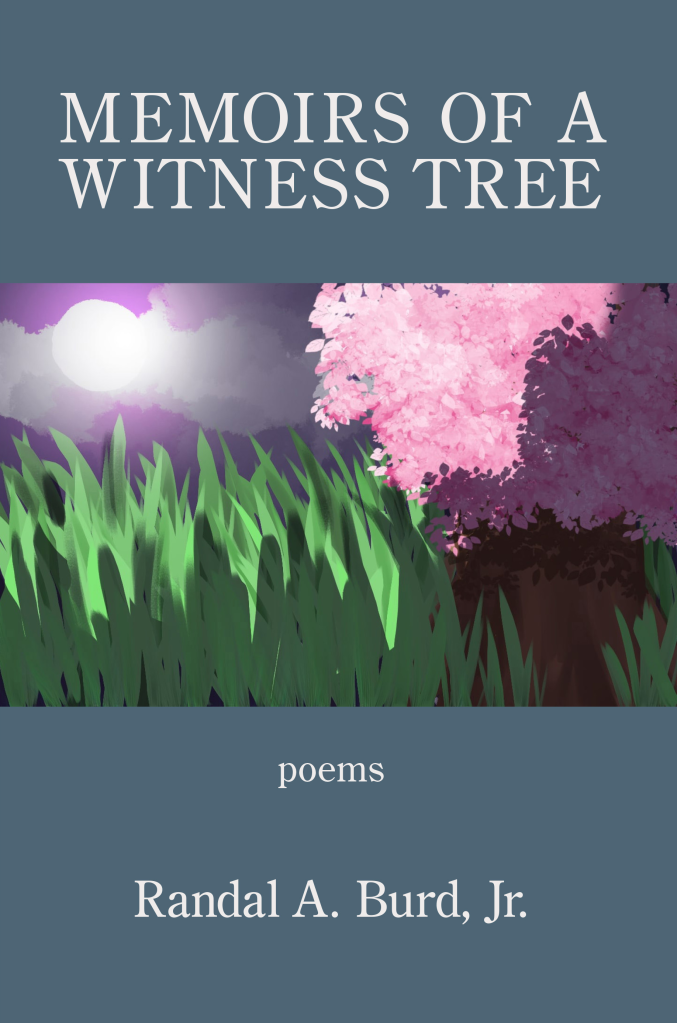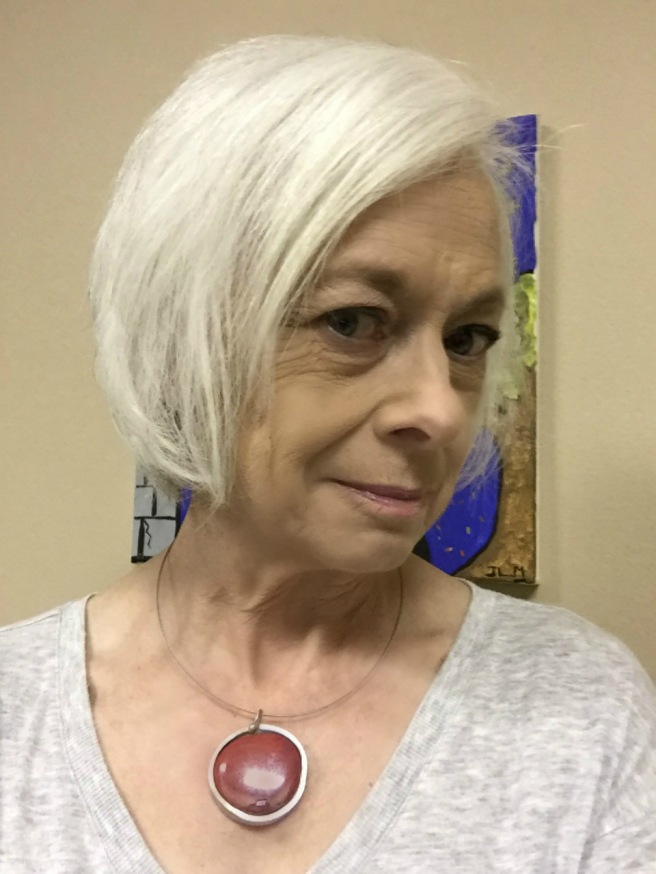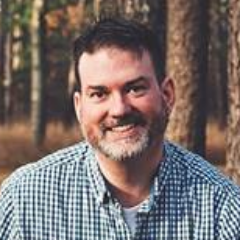Memoirs of a Witness Tree, by Randal Burd
Review by Diane Elayne Dees
Human neurology thrives on rhythm and its accompanying pleasures—rhyme and repetition. In Memoirs of a Witness Tree (Kelsay Books, 2020), formalist poet Randal Burd utilizes these poetic devices in the service of a series of poetic meditations on topics ranging from parenthood to the Civil War to the foibles of human nature. They are also about longing—for the simplicity of childhood, for lost landscapes, and for ideals that, in some cases, remain humanity’s unmet dreams.
As a sometime formalist, I feel Burd’s pain in the very first poem in the collection, playfully titled, “Humblest Apologies”:
Why should a random stranger deem to care?
Expression via sonnet is a crime—
To use such an archaic paradigm
And then expect one’s talent to compare.//
And thus, with ample warning, pray begin
To reassess conventionality.
Sonnets abound in this collection, and I was especially pleased to see inexplicably rare Australian sonnets scattered throughout the chapbook. My favorite among them is the final poem in the collection, “Forgotten,” –a poem rich in assonance and consonance, about the equalizing power of death:
Once fragile flesh and memories decay,
The brush grows thick, and ivy starts to climb.
The lichen steals identities with time.
Precipitation wears the stone away.Few living souls know whose remains are there;
Not even their descendants really care.
Another hit me, literally, where I live. My next door neighbor’s husband had just died when I read “Grief”:
Those who remain defined by who is gone,
Those gone defined by who is forced to stay.
They greet the ones who come to say goodbye
And smile when all they want to do is cry.
Their well of anguish never can run dry,
Replenished by the next in line to die.
One of Burd’s poems that had significant personal meaning for me was “An Affirmation of Faith?” whose subject is a motor vehicle accident that might have easily ended in death—but it didn’t. I experienced a rather dramatic such incident several years ago, and I continue to think about it from time to time. My thoughts are well reflected by the poet:
Reliving it inside my head—
How close I came to being dead
With each successive barrel roll.No broken bones, I barely bled,
But life continued on instead.
The answer to another’s prayer?
A blessing extraordinaire
Affirming faith for time ahead?
Many of Burd’s poems are about childhood and children, including his own children (one of whom drew the chapbook’s cover art). A rondeau that I found especially effective, “Made in China,” juxtaposes the innocence of child’s play with a terrible truth:
“Made in China” reads the label—
Shattered on the coffee table:
Some cheap and broken plastic toys
We purchased for our girls and boys—Imports purchased which enable
Labor camps that leave unstable
Lives in ruin and can disable
Limbs…
Another selection that stood out for me is “Encroaching Weeds,” a cautionary tale about how futile are our efforts to exert control. Anyone who has gardened to any extent has faced this lack of control over and over, yet the lesson doesn’t always take:
She’d not allow encroaching weeds
Among the flowers raised from seeds
In beds meticulously kept
Beyond the stable, neatly swept,
Across from where the light recedes.//
But in the dark and shadows crept
The vines and crab grass while she slept
Committing one of many deeds
She’d not allow.
I have a particular fondness for poems whose subjects are common objects, and I was not disappointed by “Suitcase,” a Shakespearean sonnet about the meaning that death confers on the remnants of a life:
A suitcase lies among the many things
Abandoned when the owner left for good.
//What irony! A suitcase left behind
Speaks more about the trip it never made,
Found useless for the task it was designed
When owner passed from substance into shade.
The sensuous pleasure of experiencing sound, rhythm and repetition is not limited to listening to music. Randal Burd, in Memoirs of a Witness Tree, reminds us that our most profound emotions can be richly and memorably expressed—and experienced—when language is presented through the classical poetical devices of rhyme and meter.
I had some questions for the poet, which he answered in the following email exchange:
Diane Elayne Dees: Have you always been a formalist, or did you work your way into it?
Randal Burd: I think my love of writing poetry came from positive exposure to rhyming poetry at a young age and a passion for music. I enjoyed reading Shel Silverstein’s Where the Sidewalk Ends and A Light in the Attic in grade school. My first poem was published when I was 11-years-old, and that poem was obviously influenced by Silverstein. The enjoyment of rhyme and meter led me to seek out other rhyming poets: William Shakespeare, Edgar Allan Poe, Emily Dickinson, Robert Frost, etc. As an undergraduate English Literature major, those influences again expanded significantly. I have written a few free-verse poems, but the lack of structure makes it more difficult for me.
DED: A teacher once told me that form is a substitute for inspiration. Does that idea resonate with you? Do you thrive on the restriction?
RB: I definitely don’t believe form is a substitute for inspiration. I find the restriction of form stimulates creativity as one searches for the right words and, in doing so, really reflects on the subject matter. I don’t find form itself inspiring; the subject matter comes first. I’ll be inspired to write a poem about a certain subject and, after thinking about it for a bit, decide this one will work best as a rondeau, or a sonnet, or something else entirely.
DED: There are several poems about death in Memoirs of a Witness Tree. Can you comment on how the concept of death informs your writing—and your life?
RB: The human condition provides limited motifs of importance: life, death, love, hate, etc. I find the contemplation of mortality is an activity that is consistently relevant regardless of time and place. Poetry is a language that brings different people together through common experience; death and the contemplation of it is an inexhaustible source of poetic inspiration.
DED: Because you are primarily a rhyming formalist, I have to ask: Who are your favorite song lyricists?
RB: It’s funny you should ask that. When I was an undergrad, one of my professors compared my poetry to country western song lyrics. I think he was being derogatory, but it is interesting to contemplate the interconnected nature of song lyrics and rhyming poetry. Rhyming is still very much in vogue when it is put to music. The problems with song lyrics as poetry, in my opinion, is that first, the quality of the writing often suffers as the lyricists get lazy with rhyme and meter, allowing the music to carry the form instead of perfecting the language. Also, I think many song lyrics lack intellectual depth, although that is not true in all cases. Picking a favorite lyricist is hard, but Leonard Cohen and Bob Dylan are the first people to come to mind.

Randal is an educator and the Editor-in-Chief of the online literary magazine, Sparks of Calliope. His poetry has received multiple awards and has been featured in numerous literary journals, both online and in print. Randal’s 2nd poetry book, Memoirs of a Witness Tree, is now available from Kelsay Books and on Amazon.


Diane Elayne Dees’s poetry has been published in many journals and anthologies. Diane is the author of the chapbook, Coronary Truth (Kelsay Books) and the forthcoming chapbook, I Can’t Recall Exactly When I Died. Diane, who lives in Covington, Louisiana, also publishes Women Who Serve, a blog that delivers news and commentary on women’s professional tennis throughout the world. Her author blog is Diane Elayne Dees: Poet and Writer-at-Large.
Risa Denenberg is the curator at The Poetry Cafe.


truly enjoyed this!!
LikeLike